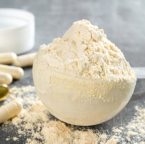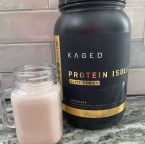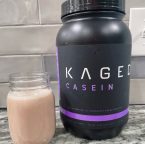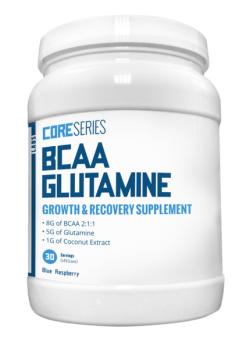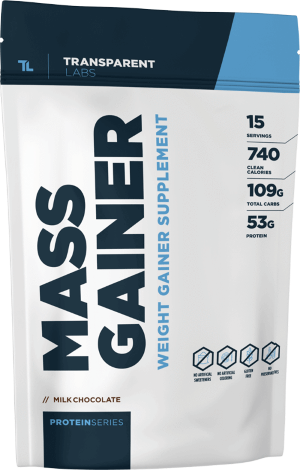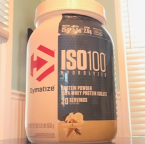An immediate fuel source or something longer and more prolonged. Today, we’re going to take a crack and determine which of these two protein powders gives the best results to most people.
Whether you’ve been in this game for a while or have only recently gotten an interest in speeding up muscle growth and bulking up, the truth of the matter is that you’re going to need a quality supplement if you want to see increased results. You can certainly get stronger and have a more impressive physique without them, however, it will often take a lot longer as well as a much more regimented diet, and even then the results may not be as impressive.
Of course, just because you decide to take supplements doesn’t mean you’re automatically going to pick the ones that are right for you and what you want. Case and point the age-old debate between whey protein and casein protein. Both of these supplements are great for building muscle and increasing strength, however, there are many differences between the two that make one potentially more ideal for you than the other. For example, while whey is the more common and accessible option, casein is known for having a prolonged effect, causing many to believe that it may be superior to whey because of it.
Below, we’re going to take a look at these two supplemental options and see which is the most ideal for you when it comes to muscle growth and enjoying an increase in overall physical strength.
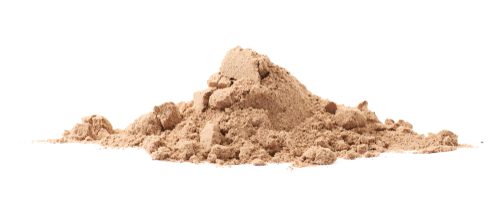
Protein Powder Explained
First off, before we jump into what makes either whey or casein protein powders ideal, it’s worth it to first break down what a protein powder actually is and why it’s a part of its specific category in the fitness supplement genre.
Regarded as a cornerstone of the fitness supplement world, protein supplements are easily one of the top nutrition-based supplements one can get. Whether it’s meant to assist in increasing the amount of protein that is in your diet, act as a form of meal replacement, or most commonly be a way to improve muscle growth, protein powder is an easy, convenient, and effective way to supplement any holes in your diet.
Types Of Protein Powders
Despite this comparison mainly being between whey protein and casein protein, the truth is that there is a surprising number of different supplement types out there. These can range from other non-dairy protein sources like egg white protein powder and collagen powder to more vegan options like many plant or soy-based proteins.
- Whey & Casein Proteins: Both whey and casein protein powders are dairy-based proteins, with whey being known for easily absorbing into the body. Casein is absorbed more slowly but results in feeling fuller longer while also supporting longer growth and recovery periods [1].
- Non-Dairy Proteins: After whey & casein, other great protein powder options include non-dairy proteins. These include things like egg white powder and collagen powder. Both are great options, with collagen especially being ideal when combined with some form of resistance training [2].
- Vegan Proteins: Consisting of various potential options including soy, pea, hemp, and brown rice, these proteins are a great alternative for vegans as well as those that may have issues digesting dairy or lactose. Depending on the type of powder, the amount of protein included can vary greatly. As an example, an average pea protein powder will have 21 grams of protein per 28-gram serving, while an average hemp protein powder may only have around 12 grams of protein.

In addition to the different protein powder food types, there are also several different forms your protein powder can exist in. These include concentrate, isolate, and hydrolysate. It’s important to know that, while these three states can exist for several protein types, they are most commonly found in whey proteins.
- Protein Concentrates: Protein concentrates consist of a concentrated amount of protein per ounce of whey material. Generally, the number should be around 80% protein and 20% fats and carbohydrates.
- Protein Isolates: Protein isolates takes this step even further, using different processing steps to instead get 90% protein or more with 10% or less being made up of fats and carbohydrates.
- Protein Hydrolysates: Protein hydrolysates are different from both concentrates and isolates. Also known as hydrolyzed whey, protein hydrolysates are noted due to being partially broken down, making its digestion and absorption both easier and faster [3].
Related: Transparent Labs 100% Grass-Fed Casein Protein Powder Review
Related: Casein Protein Powder By Kaged Muscle Review
What Is Whey Protein?
As mentioned earlier, whey protein is by far the most well-known and commonly used protein powder supplement out there. It is the yellowish watery remains that come as a result of cheese-making. After being separated from the cheese cultures, the whey is dried and processed before becoming whey protein powder. The processing can end in one of three forms. These include the aforementioned whey protein concentrate, isolate, and hydrolysate forms.
While it naturally has a less-than-desirable taste, whey protein powder can be processed further to incorporate various flavors, including vanilla, chocolate, strawberry, and many others. Similarly, while protein shakes are the most common form of protein powder, whey can also be made into protein bars as well as a meal replacement.
Benefits Of Whey Protein
Considering it is the most common form of protein powder supplementation, there are many great benefits that come from using whey.
A Complete Protein
A big benefit that comes with using whey protein supplementation is that it is a complete protein. This means that it includes all nine essential amino acids that our bodies cannot naturally produce on their own [4]. This includes:
- Leucine
- Isoleucine
- Valine
- Branched-chain amino acids (BCAAs)
More Accessible
Not only is whey protein an incredibly affordable protein powder, but it’s also widely sold in virtually every grocery, fitness, and health-food store. Not only that, but it comes in multiple flavors, making it easier to stick with a whey option compared to other protein sources which may not taste as good.
High Absorption Rate
A huge selling point for whey protein is the fact that it absorbs into the body incredibly fast, especially when compared to other proteins like casein protein [5]. Whereas casein protein can take upwards of between four and five hours before fully absorbing into the body, whey protein can begin reacting in as little as 90 minutes. This is because, while both are dairy, whey is a thinner protein, and able to be broken down much faster. Casein, on the other hand, forms curds that can take much longer for the body to break down and utilize.
Ideal For Muscle Building
For those interested in building up muscle, whey protein is a serious contender worth thinking about. As mentioned before, whey is a complete protein, which includes BCAAs leucine. In this case, leucine is particularly useful when it comes to causing the body to immediately begin using the proteins and building up muscle [6].
Whey protein also stimulates muscle protein synthesis, which results in the muscles growing more aggressively, especially when used during a workout [7].
Boosts Immune System
Whey protein has been shown to help build an assortment of different immune responses. These include regulating blood pressure, helping moderate type 2 diabetes, reducing inflammation, reducing oxidative stress, and helping reduce LDL cholesterol numbers [8, 9, 10, 11, 12].
Inflammation reduction is particularly important, as its reduction can similarly result in a faster recovery time when working out as well as the ability to push harder during set workouts. This, in turn, will help improve muscle gain and physical strength.
Improved Satiety
Whey protein has been shown to have high satiety, resulting in feeling fuller and having a reduced appetite, even more so than casein protein supplements [13].
Great For Weight Loss
As a result of its increase in muscle growth, improvement to the immune system, and overall improved sense of fullness and satiety, whey protein has been instrumental for many people in losing weight and burning fat.
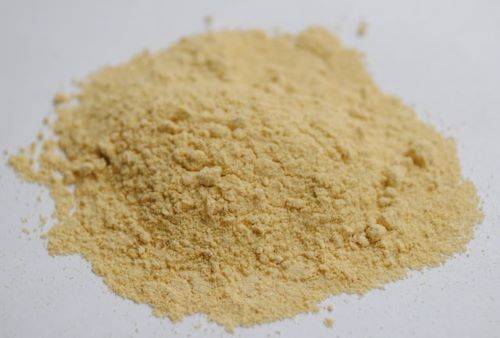
Related: Top Whey Isolate Powders on the Market
What Is Casein Protein?
As with whey protein, casein protein is the result of processed milk during the cheese-making process. Whereas whey is the liquid substance, casein is the remaining curds, which are washed and dried to create a protein powder. These curds are also what is used to make cheese as well as other forms of dairy.
As with whey, casein is a complete protein, carrying all nine essential acids. It is also a highly dense form of protein, actually offering a higher protein percentage compared to whey.
Benefits Of Casein Protein
While it doesn’t offer quite as many unique benefits compared to whey protein, casein has been shown to make up for this with its benefits being more impressive overall with more long-term effects.
Improved Muscle Growth
While not as fast as whey in getting absorbed into the body, casein offers similar amounts of protein and muscle growth, especially when broken down around the time of a workout [14]. In fact, it’s because of casein’s slow-acting absorption that it is an ideal option to take right before bed [15].
Decreased Hunger
Both whey and casein have been shown to decrease one’s hunger and increase satiety. As with everything between these two, however, this is the same result from two different methods. Where whey improves satiety by immediately fueling your body with protein, casein instead delays hunger by having your body slowly break down and absorb the protein over several hours.
As such, it can be argued that, while whey will make you feel fuller and more satiated for a relatively short amount of time, casein will have you feeling contented virtually throughout the entire day.
Nutrient Dense
Just as whey is packed with several beneficial nutrients, casein protein is high in calcium. A serving of casein protein can account for 50% of your daily value [16]. Calcium is known for many important functions, namely supporting bone and muscle health, thus improving your performance when working out.
In addition to calcium, casein protein is also high in what’s known as bioactive peptides. These are a form of nutrient that has been shown to reduce blood pressure similar to that of several medications [17]. In addition, these bioactive peptides have been shown to improve your digestive and gut health, allowing you to better break down all types of food much more efficiently [18].
Increased Muscle Retention
Interestingly, despite losing out to whey when it comes to absorption rate, casein is much better at muscle retention for the exact reason. Because it takes so long to absorb into the body, this has the surprising effect of allowing the body to hold onto muscle for longer. These effects can even go long into old age, reducing the amount of muscle atrophy one may normally experience.
Whey vs. Casein – Who Benefits The Most?
As you can see, despite their differences, there is also a fair amount of overlap between the two protein sources. Still, it’s because of their differences that one may work better for some over others. As an example, what a beginner is looking for in a protein supplement may be very different than what a professional athlete or a bodybuilder is looking for. Understanding these differences will make sure that you’re getting the right supplement based on your condition and where you are as a gym and fitness enthusiast.
Beginner Athletes
For those that are just starting out (someone that has only started going to the gym regularly within the last 11 months), it can be tempting to go for the top-brand products simply because they cost more. Instead, it makes much more sense to get your body accustomed to fitness supplements, and that means whey protein powder.
Not only is whey more easily accessible, with multiple flavors and forms, but it allows for immediate benefits and results virtually right after you’ve taken it. Because casein has such a long period before becoming useable, it is easy to feel discouraged during a workout and potentially give up before you’ve had a chance to do anything.
Casual Gym-Goers
If you’ve been going to the gym for one and two years on a somewhat regular schedule, you’d be considered a casual gym-goer. It’s something you find important, but understand that there are potentially other more pressing things that may come first.
For those in this category, your best bet is going to be casein protein powder. Casein is great for those that have a hectic schedule and aren’t quite ready to stick to something more regimented. Because of its slower breakdown, you’ll feel fuller for longer than with whey, making it a great option to take right before bed or early in the morning right after a jog.
Strength Training
If you’re an athlete that has been willing to get into the gym on a more consistent schedule and is specified in the gym performing strength-based exercises, you’re in the strength training category. Here, you may not be on the precise level as a professional athlete or bodybuilder, but you fundamentally understand that what you eat will impact your performance in the gym. As such, you’re going to operate best with whey protein powder.
As mentioned before, whey protein powder is made for the gym-goer that is serious about working out and getting the most out of their performance in the gym. The simple truth is that, while there are many benefits with casein protein powder, if you’re trying to maximize your gains when working out, you’re going to want to focus on whey over casein.
Bodybuilders & Professional Athletes
For those that are truly serious about pushing their physical body to its limits and utterly transforming it in ways few would be willing to (you’re in the gym several hours a day, five to six times a day per week), you fall into the professional athlete/bodybuilder category. Those in this category are actually very serious about their supplementation and will likely know when to take what as well as the exact amounts.
When it comes to which will work best, the truth is that you’ll want to use both, whey protein powder and casein protein powder. This is because, if you’re trying to see the most benefit, you’ll want to use whey during your workout and casein about an hour or so after. This will ensure your muscles are being fed throughout the day, thus ensuring that they are primed and ready to be stressed and strained, something that may happen if you’re only taking one supplement or the other.

Related: Best Casein Protein Powders on the Market
Final Verdict
Ultimately, when it comes to the supplement you take, I’d like to tell you that it “doesn’t matter”, and that both are great in their own right, however, that’s simply not the case. What you take here will severely impact the effectiveness of your workout.
When it comes down to it, despite the tremendous benefits that come with a casein protein supplement, unless you are trying to stay fed throughout the day, or plan to build muscle throughout the night if you’re seriously trying to gain muscle when at the gym, you’ll want to instead opt for whey protein powder. Not only is it more affordably priced, but it’s also more accessible overall, available in multiple flavors to match your taste, and available in even hydrolyzed whey protein, which has protein amounts similar even to most casein protein powders.
All in all, casein is a great option for those in a specific situation. For the vast majority of people interested in gaining muscle, you’re better off sticking with the ole classic whey protein.
References
- Antonio J, Ellerbroek A, Peacock C, Silver T. Casein Protein Supplementation in Trained Men and Women: Morning versus Evening. Int J Exerc Sci. 2017 May 1;10(3):479-486. PMID: 28515842; PMCID: PMC5421981.
- Jendricke P, Centner C, Zdzieblik D, Gollhofer A, König D. Specific Collagen Peptides in Combination with Resistance Training Improve Body Composition and Regional Muscle Strength in Premenopausal Women: A Randomized Controlled Trial. Nutrients. 2019 Apr 20;11(4):892. doi: 10.3390/nu11040892. PMID: 31010031; PMCID: PMC6521629.
- Jeewanthi RK, Lee NK, Paik HD. Improved Functional Characteristics of Whey Protein Hydrolysates in Food Industry. Korean J Food Sci Anim Resour. 2015;35(3):350-9. doi: 10.5851/kosfa.2015.35.3.350. Epub 2015 Jun 30. PMID: 26761849; PMCID: PMC4662358.
- Jeewanthi RK, Lee NK, Paik HD. Improved Functional Characteristics of Whey Protein Hydrolysates in Food Industry. Korean J Food Sci Anim Resour. 2015;35(3):350-9. doi: 10.5851/kosfa.2015.35.3.350. Epub 2015 Jun 30. PMID: 26761849; PMCID: PMC4662358.
- Dangin M, Boirie Y, Guillet C, Beaufrère B. Influence of the protein digestion rate on protein turnover in young and elderly subjects. J Nutr. 2002 Oct;132(10):3228S-33S. doi: 10.1093/jn/131.10.3228S. PMID: 12368423.
- Norton LE, Layman DK, Bunpo P, Anthony TG, Brana DV, Garlick PJ. The leucine content of a complete meal directs peak activation but not duration of skeletal muscle protein synthesis and mammalian target of rapamycin signaling in rats. J Nutr. 2009 Jun;139(6):1103-9. doi: 10.3945/jn.108.103853. Epub 2009 Apr 29. PMID: 19403715.
- Daniel WD West, Nicholas A Burd, Vernon G Coffey, Steven K Baker, Louise M Burke, John A Hawley, Daniel R Moore, Trent Stellingwerff, Stuart M Phillips, Rapid aminoacidemia enhances myofibrillar protein synthesis and anabolic intramuscular signaling responses after resistance exercise–, The American Journal of Clinical Nutrition, Volume 94, Issue 3, September 2011, Pages 795–803,
- Seppo L, Jauhiainen T, Poussa T, Korpela R. A fermented milk high in bioactive peptides has a blood pressure-lowering effect in hypertensive subjects. Am J Clin Nutr. 2003 Feb;77(2):326-30. doi: 10.1093/ajcn/77.2.326. PMID: 12540390.
- Frid AH, Nilsson M, Holst JJ, Björck IM. Effect of whey on blood glucose and insulin responses to composite breakfast and lunch meals in type 2 diabetic subjects. Am J Clin Nutr. 2005 Jul;82(1):69-75. doi: 10.1093/ajcn.82.1.69. PMID: 16002802.
- Zhou LM, Xu JY, Rao CP, Han S, Wan Z, Qin LQ. Effect of whey supplementation on circulating C-reactive protein: a meta-analysis of randomized controlled trials. Nutrients. 2015 Feb 9;7(2):1131-43. doi: 10.3390/nu7021131. PMID: 25671415; PMCID: PMC4344580.
- de Aguilar-Nascimento JE, Prado Silveira BR, Dock-Nascimento DB. Early enteral nutrition with whey protein or casein in elderly patients with acute ischemic stroke: a double-blind randomized trial. Nutrition. 2011 Apr;27(4):440-4. doi: 10.1016/j.nut.2010.02.013. Epub 2010 Dec 16. Erratum in: Nutrition. 2011 Sep;27(9):982. PMID: 21167685.
- Atefeh Tahavorgar, Mohammadreza Vafa, Farzad Shidfar, Mahmoodreza Gohari, Iraj Heydari,
Beneficial effects of whey protein preloads on some cardiovascular diseases risk factors of overweight and obese men are stronger than soy protein preloads – A randomized clinical trial, Journal of Nutrition & Intermediary Metabolism, Volume 2, Issues 3–4, - Pal S, Radavelli-Bagatini S, Hagger M, Ellis V. Comparative effects of whey and casein proteins on satiety in overweight and obese individuals: a randomized controlled trial. Eur J Clin Nutr. 2014 Sep;68(9):980-6. doi: 10.1038/ejcn.2014.84. Epub 2014 May 7. PMID: 24801369.
- Wilborn CD, Taylor LW, Outlaw J, Williams L, Campbell B, Foster CA, Smith-Ryan A, Urbina S, Hayward S. The Effects of Pre- and Post-Exercise Whey vs. Casein Protein Consumption on Body Composition and Performance Measures in Collegiate Female Athletes. J Sports Sci Med. 2013 Mar 1;12(1):74-9. PMID: 24149728; PMCID: PMC3761774.
- Kim J. Pre-sleep casein protein ingestion: new paradigm in post-exercise recovery nutrition. Phys Act Nutr. 2020 Jun 30;24(2):6-10. doi: 10.20463/pan.2020.0009. PMID: 32698256; PMCID: PMC7451833.
- https://fdc.nal.usda.gov/fdc-app.html#/food-details/1742977/nutrients
- Kitts DD, Weiler K. Bioactive proteins and peptides from food sources. Applications of bioprocesses used in isolation and recovery. Curr Pharm Des. 2003;9(16):1309-23. doi: 10.2174/1381612033454883. PMID: 12769739.
- Kitts DD, Weiler K. Bioactive proteins and peptides from food sources. Applications of bioprocesses used in isolation and recovery. Curr Pharm Des. 2003;9(16):1309-23. doi: 10.2174/1381612033454883. PMID: 12769739.

Ryan is a former college wrestler and lifelong fitness fanatic. He has run half marathons, done mud runs, placed in body transformation contests, coached wrestling, and now coaches girls’ soccer. Not to mention he has also tried literally hundreds of supplements over the years and has a vast and thorough supplement knowledge. He has written for Muscle & Strength, Testosterone Junkie, The Sport Review and other publications. He is also the editor-in-chief of this website and has over 25 years of experience in the fitness industry. Feel free to connect with him on his LinkedIn page below.


